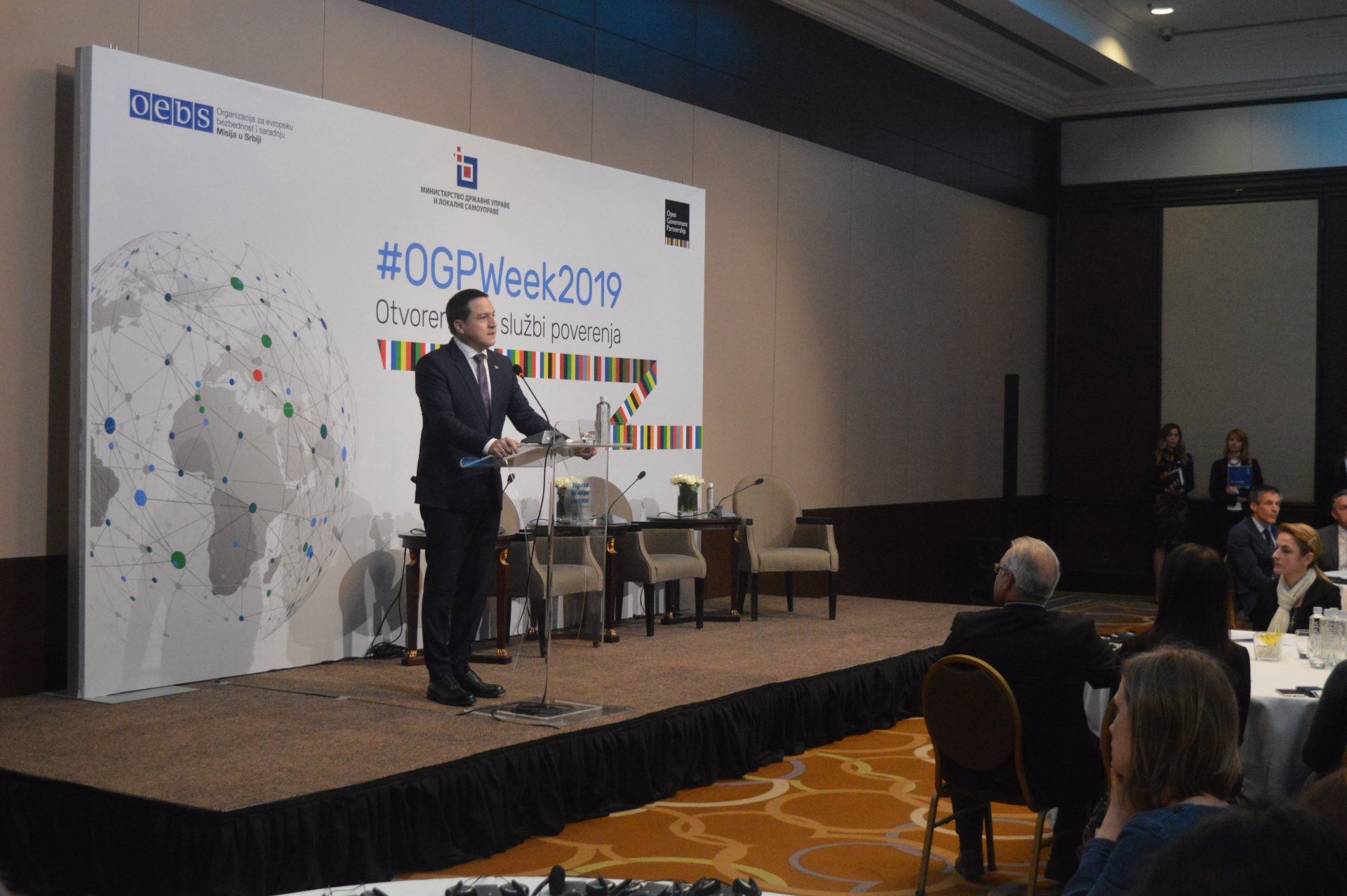
During the previous year, Serbian citizens and their associations, through their participation in public consultations and discussions, directly affected the compilation of 19 draft laws and 16 other public policy documents, and they had an opportunity to direct their money into investments they consider priority in over 70 towns and municipalities, through participative budgeting.
The principle of open government, followed by our country, entails a commitment to involve citizens in the decision making processes which directly affect the quality of their lives, and the development of electronic communications and open data, transparency and efficiency of public administration is crucial for that.
“Since the start of my mandate, I have established digitalization of public services, economy and education as one of the priorities of my Government. Open data are important, first and foremost, for better transparency of the public administration and for building trust with citizens and economic entities. At the same time, it is a significant boost to the economy, start-up and innovative enterprises”, said the Prime Minister Ana Brnabić at the opening of today’s conference “Openness builds trust”, organized within the Open Government Week, which is celebrated throughout the world from 11 to 17 March.
Since 2012, Serbia has been a part of the global initiative Open Government Partnership (OGP), and, together with 98 other countries, has been working on the improvement of accountability of the public administration and a stronger involvement of citizens in the adoption of public policies. Within OGP, our country has committed itself to fulfilling 28 objectives, such as to launch an open data portal, improve the law on the free access to information of public importance, adopt a law on e-business, and simplify administrative procedures, and some of these objectives have already been achieved. There are 30 institutions which have opened their data on the national portal of open data, out of which 12 local self-governments, and citizens and economic entities may find them in almost 500 files.
“The highest title does not belong to the President, Minister, Mayor, or President of the Municipality. The highest title is that of a citizen. Therefore we must create a society tailored to the needs of citizens, with equality for all, for each woman, each child, each person with special needs, person of a different religion, skin colour, orientation, stated Branko Ružić, the Minister of Public Administration and Local Self-Government.
At a meeting organized by the Ministry of Public Administration and Local Self-Government and OSCE, it was pointed out that the principles of open government particularly focused on the cooperation between local self-governments and civil society organisations, and thus making citizens the centre of attention required a change in the method of work of all levels of government and a synergy of all parts of the society.
“In the process of creating an accountable and transparent government which is an efficient public service for citizens, local self-governments have a very important role in the implementation of the principle of Open Government Partnership (OGP). For that reason, OSCE Mission to Serbia has supported the compilation of local action plans for OGP in five local self-governments, which may serve as a domestic and regional model”, said Andrea Orizio, Head of the OSCE Mission to Serbia.
According to him, OSCE Mission, as a partner of many years, is ready to support the Ministry in its efforts to help local self-governments in the implementation of the principle of Open Government Partnership.
Sem Fabrizi, Head of Delegation of the European Union to the Republic of Serbia, underlined that it was particularly important for citizens that the authorities undertake the obligation to be open about its procedure of the compilation of the budget and its spending of tax-payers’ money. That change is an important segment of the public administration reform and modernisation. Due to its complexity, public administration reform is not a part of a separate chapter in the negotiation process on EU accession, but is one of the three key criteria for membership.
At the meeting which gathered representatives of the diplomatic corps and international organisations, mayors, presidents of municipalities and the non-governmental sector, the importance of open government for the EU integration was emphasized, and support was announced by UNDP officials.
“”Adopted action plans will be still used in the future as mechanisms for facilitating national reforms which contribute to the achievement of global sustainable development goals. Progress in the realization of the priorities and European integration are inseparable, since they are a part of the same process”, pointed out Steliana Nedera, Deputy Resident Representative UNDP Serbia.
The conference concluded that observance of the open government principle was important for citizens, as an important segment of the fight against corruption and non-systematic spending of tax payers’ money. In addition, transparency of the public administration is very important for the promotion of economic development, having in mind that opening data to citizens may encourage the development of a large number of entrepreneurship idea and job creation.



